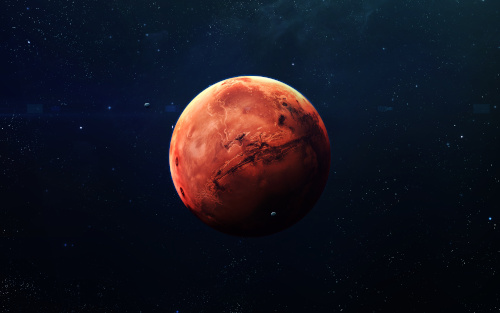Key points:
- Stay up to date on the latest trends about learning in the digital age
Each year, we share our 10 most-read stories. Not surprisingly, many of this year’s Top 10 focused on equity, edtech innovation, immersive learning, and the science of reading. This year’s 3rd most-read story focuses on immersive and interactive learning.
The Museum of Science, Boston is making its first move into the world of immersive online education with its launch of “Mission: Mars,” an educational experience on Roblox, a global platform connecting millions of people through immersive 3D experiences.
Developed in partnership with Filament Games, “Mission: Mars” challenges participants to engage in the Engineering Design Process, developing and iterating on vehicles ready to navigate the mysterious red planet and complete exploratory missions with friends to survive on Mars.
The Museum of Science is the first Roblox Community Fund (RCF) recipient to launch their experience since the fund’s introduction in November of 2021. Through the initial $10M fund, RCF has been offering grants to educational organizations to develop innovative learning experiences and curriculum leveraging the platform in immersive and compelling ways.
The immersive 3D “Mission: Mars” experience focuses on engaging students of all ages in the Engineering Design Process, providing a high-quality, entertaining, and Next Generation Science standards-aligned digital experience for both formal and informal learning. It enables individuals to step into a Mars survival suit, navigate terrain in a hi-tech Mars Rover, help their team in specific level-based missions to discover past evidence of water, collect samples of water ice, and rescue fellow explorers from certain doom. Participants also design and create vehicles to help them in their missions and will be able to earn experience points and rewards along the way.
Museum of Science President Tim Ritchie said: “The Museum’s entry into the metaverse is part of our aspiration to reach 100 million people in museums, classrooms, and online by 2030, breaking down barriers to engagement and creating greater equity in science, technology, engineering, and math (STEM) education. It’s not enough for the Museum to be the most popular destination for families in New England and to share hands-on curricula with educators and millions of students around the world–we also want to leap into the metaverse to meet students where they are with top-quality STEM content.’’
Filament Games CEO Dan White said: “The in-game mechanics and environmental design in ‘Mission: Mars’ are all based on true scientific principles, powered by actual data collected by NASA on Mars.’’
“The Roblox platform offers developers like Filament the opportunity to deliver the kind of compelling deeper learning contexts that students and educators alike crave when exploring hands-on topics such as the engineering design process,’’ said Rebecca Kantar, Vice President of Education at Roblox. “Mission: Mars is a great example of putting the core learning objective, building and iterating for specific mechanical tasks and conditions, at the center of fun, rich experience design.”
The Museum of Science is also home to EiE®, the award-winning PreK-8th grade curricula division that reaches over 2 million students per year across the country and world. “Mission: Mars” will also include a full suite of instructional materials and supplemental support for teachers to use it for engineering and science education in classrooms, all designed to
- Support both engineering newcomers and experienced engineering educators;
- Highlight the engineering design process within missions;
- Explicitly link gameplay to Next Generation Science Standards (NGSS) and EiE Habits of Mind;
- Support student analysis of in-game designs through engineering discussion guides;
- And point teachers to outside support for getting started in Roblox and organizing a class.
Please go to mos.org/Roblox to learn more and here to access “Mission: Mars” directly on Roblox.
Related:
Everything you need to know about AI in education
In 2024, education will move to adopt AI—but slowly
For more news on immersive learning, visit eSN’s Digital Learning page
- The importance of the ITS and Facilities relationship - March 22, 2024
- How edtech is transforming bilingual education in the U.S. - March 21, 2024
- 5 ways to keep schools safer with innovative visitor management - March 21, 2024


